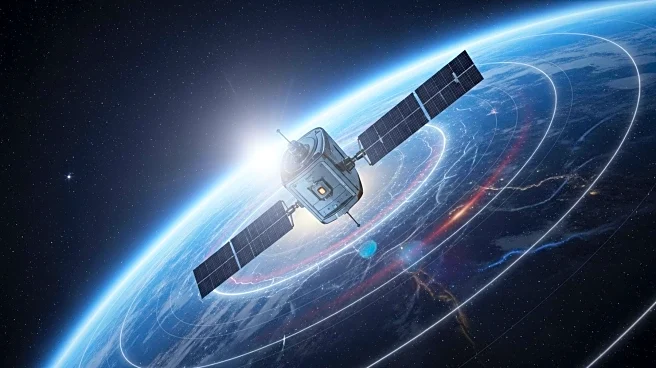What's Happening?
Professor Adam Amara from the University of Surrey has expressed optimism about the Euclid satellite's potential to transform our understanding of the universe. Launched by SpaceX, Euclid is two years into a six-year mission aimed at capturing high-quality images to help astronomers explore dark matter and dark energy. The satellite's unique ability to combine breadth, depth, and sharpness in its observations sets it apart from previous space telescopes. Professor Amara, who played a significant role in the satellite's development, hopes the project will inspire future generations of space scientists. The satellite is currently surveying a third of the sky to gather data on dark matter and dark energy, which are believed to constitute 95% of the universe's contents but remain largely mysterious.
Why It's Important?
The Euclid satellite's mission is crucial for advancing scientific knowledge about dark matter and dark energy, which are fundamental components of the universe yet poorly understood. By providing unprecedented insights into these phenomena, Euclid could lead to breakthroughs in cosmology and astrophysics. The project also highlights the collaborative efforts of scientists worldwide, including those from the UK, who are analyzing the satellite's data. This initiative not only contributes to scientific discovery but also fosters educational opportunities for students in the field, potentially shaping the future of space exploration and research.
What's Next?
As Euclid continues its mission, scientists will delve deeper into the data to uncover the secrets of dark matter and dark energy. The ongoing analysis may lead to new theories and models that redefine our understanding of the universe. The project is expected to generate interim results that could guide future research directions. Additionally, the involvement of young scientists and students in the project suggests a growing interest in space science, which may lead to increased investment and innovation in the field.
Beyond the Headlines
The Euclid satellite's mission underscores the importance of international collaboration in scientific research. It also raises ethical considerations about the allocation of resources for space exploration versus other pressing global issues. The project's success could influence public policy and funding priorities, encouraging more support for scientific endeavors that promise long-term benefits for humanity.









